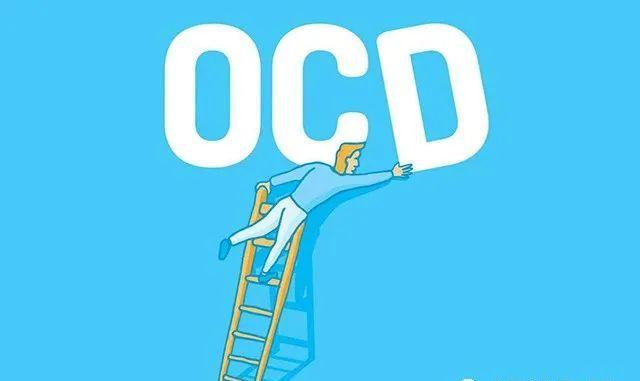The above is the audio of this article, if necessary, you can click to listen
Have you ever had an unwanted idea, but it stuck in your head and kept repeating it? This is called "intrusive thoughts."
Intrusive thoughts can pop up and cause a lot of anxiety. When thoughts transcend invasiveness, this can be a sign of obsessive-compulsive disorder (OCD).
Obsessive-compulsive disorder is a common chronic anxiety disorder that involves recurring, unwanted thoughts or obsessive-compulsive thoughts that often make you feel driven to do something repeatedly.
If you find yourself worried about what might happen, for example, "What if I fail my driver's license test?" Or "What if my headache is a sign of a serious physical illness?" ”......
In fact, these ideas are manageable. You can learn practical ways to change your obsessive-compulsive perceptions and behaviors by practicing them to relax your mind.

What does the "hypothetical" idea of obsessive-compulsive disorder look like?
Many of us experience "hypothetical" thoughts on a daily basis, but we understand that these thoughts don't always align with what we know about ourselves. So we often forget about them and move on to our day.
However, for those with obsessive-compulsive disorder, these thoughts can "get stuck" in their minds and become a compulsive behavior. "Obsessive-compulsive, repetitive behaviors are characteristic of many people with obsessive-compulsive disorder and are often driven by dreaded 'hypothetical' ideas," explains Professor Rong Xinqi, an expert in new concept psychology.
If you have unwanted thoughts, such as, "What if I have cancer?" Professor Rong said this could make people feel the urge to seek unnecessary medical diagnoses and treatments.
Professor Rong said that our minds create hypothetical disasters, and these ideas often prompt people with obsessive-compulsive disorder to solve problems that do not yet exist and have not yet occurred. Repetitive, compulsive behavior is pushed because it seems too reckless to ignore warnings of impending disaster.
Other examples of "what if" ideas include:
What if I lose my job?
What if my partner leaves me?
What if I have a heart attack?
What if I have a panic attack?
What if I fail the exam?
……
How to manage the "what if" idea of obsessive-compulsive disorder?
Professor Rong said one way to manage "what if" ideas is to find and adopt a good strategy to solve these problems. Here are some tips to help you manage and regulate your thought process.
1. Reflect on what triggers these thoughts
Reflect on what you think might have sparked these "hypothetical" thoughts: What happened? Is there anything that makes me question this? ...... These anxious "what if" thoughts are often driven by specific situations.
Take some time to see if you can pinpoint what the triggers are, and if you know the triggers in advance, you can be more prepared to get into the situation and better cope with and manage "what-if" ideas and obsessive-compulsive notions.
2. Increase your mindfulness
Professor Rong said, try to pay attention to anything that happens in your mind and body. He recommends jocing down the thoughts that bother you (only when necessary) and writing them down to help you find a more reasonable option.
Professor Rong explains that recording your "hypothetical" thoughts can help you release them from your mind and make you more aware of how often you have intrusive thoughts. He suggested trying to turn the idea of "what if" into the idea of "even if", as changing the terminology might be more reassuring.
3. Build useful ideas
To help and motivate you, consider documenting your reasonable thoughts and reviewing them daily. "By developing the habit of recalling functional thoughts, we can gradually make them the focus of our attention, thereby enhancing our emotions and motivation," Professor Rong said.
4. Consider Cognitive Behavioral Therapy (CBT)
To help manage obsessive-compulsive thoughts, consider trying CBT. This is one of the most effective ways you can deal with compulsive thoughts with a counselor.
"Cognitive behavioral therapy (CBT) helps address the thought patterns associated with obsessive-compulsive disorder and obsessive-compulsive disorder," Professor Rong said. According to a 2018 review, CBT is an effective psychotherapeutic that can help treat depression, anxiety and other related mental illnesses.
According to Professor Rong, the most effective CBT treatment for obsessive-compulsive disorder is exposure and reaction prevention. It involves experiencing situations that trigger your symptoms, such as not being able to wash your hands after touching a dirty dish.
Professor Rong said, "Forced to stay in terrible situations (exposure to dirty things), obsessive-compulsive disorder sufferers are forced to consider whether they can tolerate this situation, and their ability to resist 'hypothetical' impulses, corrective coercive action is strengthened." ”
In addition, he also suggested that cbt should be combined with hypnotherapy to cure obsessive-compulsive disorder, which can have a better effect.
Everyone experiences some intrusive thoughts once in a while, and you wonder what if something bad happens "if"? While these ideas may be troubling, many people don't think about them.
When these thoughts become more than just invasive, you may suffer from obsessive-compulsive disorder.
It's important to have a strategy for managing irrational thoughts, and you need to know that you're not alone. If your intrusive thoughts interfere with your daily life, it may be time to consider seeking help from a professional.
| personality color test can pay attention to the reply of this public account: personality color test.
| depression self-test can pay attention to the reply of this public account: depression self-test for testing.
| anxiety disorder self-test can pay attention to the reply of this public account: anxiety disorder self-test for testing.
| bipolar disorder self-test can pay attention to the public number reply: bipolar self-test for testing.
Sweep away the attention